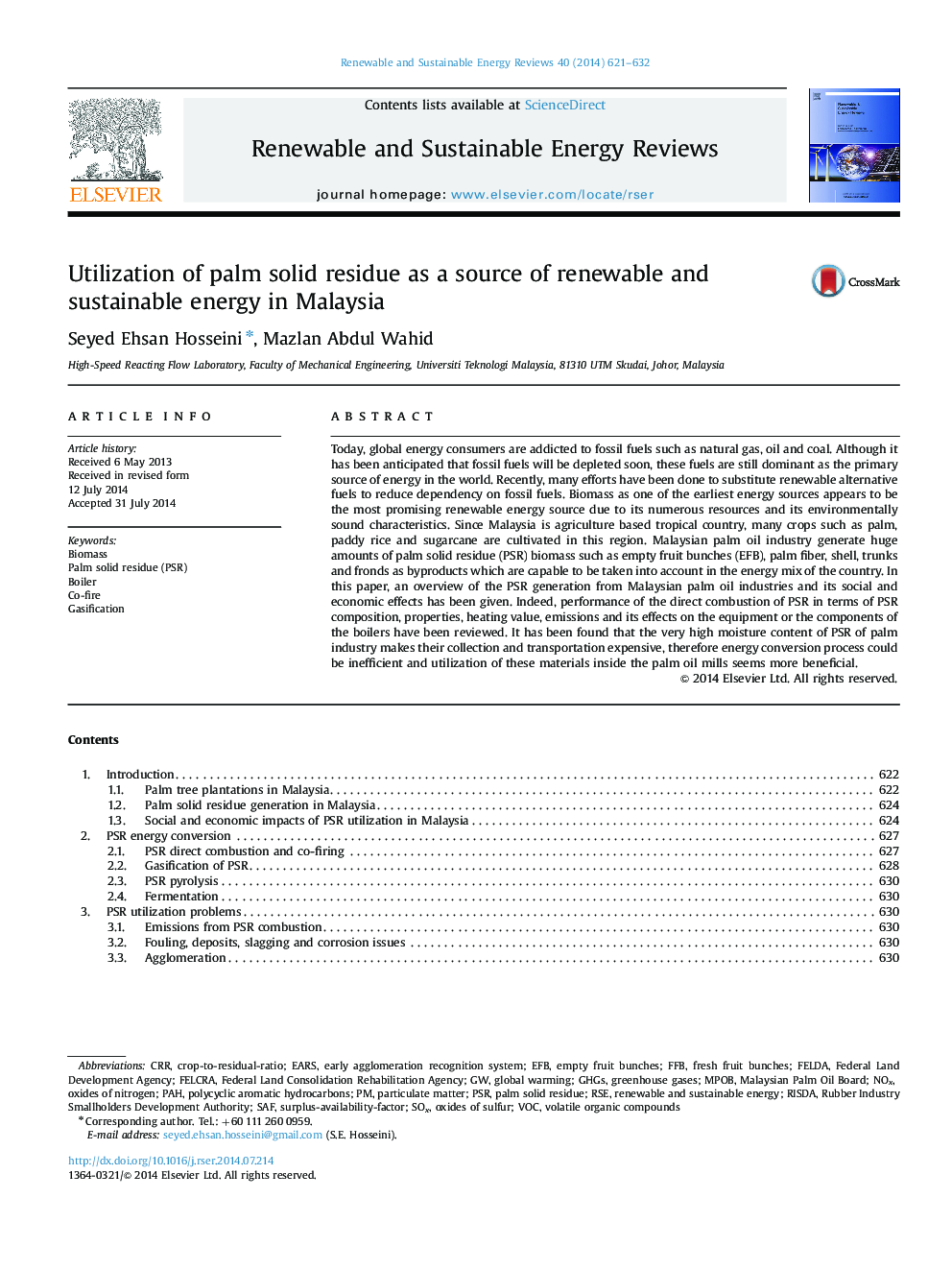| کد مقاله | کد نشریه | سال انتشار | مقاله انگلیسی | نسخه تمام متن |
|---|---|---|---|---|
| 8118851 | 1522345 | 2014 | 12 صفحه PDF | دانلود رایگان |
عنوان انگلیسی مقاله ISI
Utilization of palm solid residue as a source of renewable and sustainable energy in Malaysia
ترجمه فارسی عنوان
استفاده از باقی مانده جامد نخل به عنوان منبع انرژی تجدید پذیر و پایدار در مالزی
دانلود مقاله + سفارش ترجمه
دانلود مقاله ISI انگلیسی
رایگان برای ایرانیان
کلمات کلیدی
GHGsSAFRSEPAHEFBPSRFFBVOCCRRNOx - NOXSOx - SOXRenewable and sustainable energy - انرژی قابل تجدید و پایدارOxides of nitrogen - اکسید نیتروژنBoiler - بویلرVolatile organic compounds - ترکیبات آلی فرارEmpty fruit bunches - تکه های میوه ای خالیparticulate matter - ذرات معلقBiomass - زیست توده یا بیومسPolycyclic aromatic hydrocarbons - هیدروکربن آروماتیک چندحلقهایFresh fruit bunches - پیاز میوه تازهGasification - گازسیونGreenhouse gases - گازهای گلخانه ایGlobal warming - گرم شدن زمین یا گرمایش زمینEARS - گوش ها
موضوعات مرتبط
مهندسی و علوم پایه
مهندسی انرژی
انرژی های تجدید پذیر، توسعه پایدار و محیط زیست
چکیده انگلیسی
Today, global energy consumers are addicted to fossil fuels such as natural gas, oil and coal. Although it has been anticipated that fossil fuels will be depleted soon, these fuels are still dominant as the primary source of energy in the world. Recently, many efforts have been done to substitute renewable alternative fuels to reduce dependency on fossil fuels. Biomass as one of the earliest energy sources appears to be the most promising renewable energy source due to its numerous resources and its environmentally sound characteristics. Since Malaysia is agriculture based tropical country, many crops such as palm, paddy rice and sugarcane are cultivated in this region. Malaysian palm oil industry generate huge amounts of palm solid residue (PSR) biomass such as empty fruit bunches (EFB), palm fiber, shell, trunks and fronds as byproducts which are capable to be taken into account in the energy mix of the country. In this paper, an overview of the PSR generation from Malaysian palm oil industries and its social and economic effects has been given. Indeed, performance of the direct combustion of PSR in terms of PSR composition, properties, heating value, emissions and its effects on the equipment or the components of the boilers have been reviewed. It has been found that the very high moisture content of PSR of palm industry makes their collection and transportation expensive, therefore energy conversion process could be inefficient and utilization of these materials inside the palm oil mills seems more beneficial.
ناشر
Database: Elsevier - ScienceDirect (ساینس دایرکت)
Journal: Renewable and Sustainable Energy Reviews - Volume 40, December 2014, Pages 621-632
Journal: Renewable and Sustainable Energy Reviews - Volume 40, December 2014, Pages 621-632
نویسندگان
Seyed Ehsan Hosseini, Mazlan Abdul Wahid,
